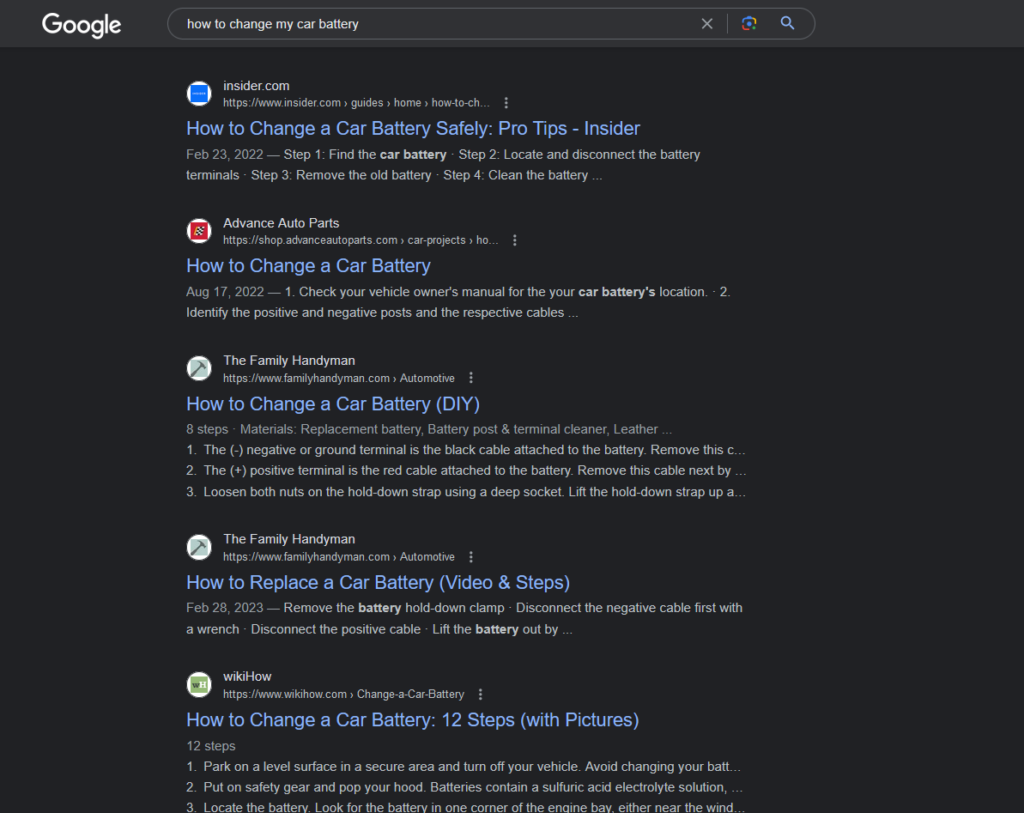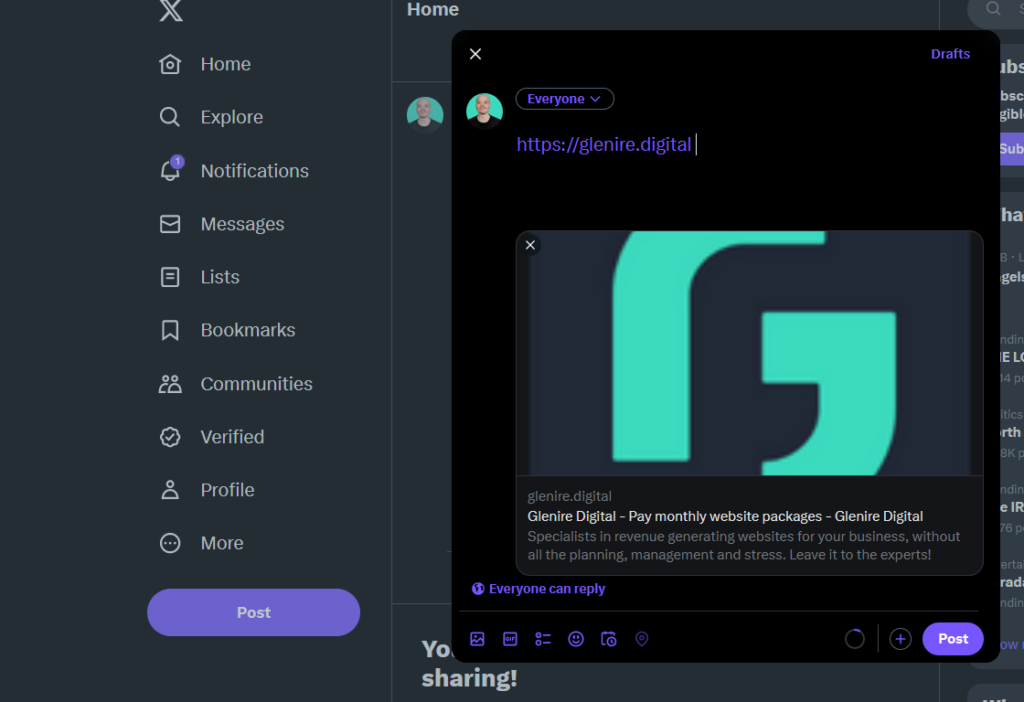Think of a website title as a digital nameplate, showing who you are to the world. It’s part of the HTML family and plays a key role in webpage metadata, SEO optimization, and site identity.

How search engines use the title to understand website content.
So you’ve already got your website up and running. Or maybe you’re still in the process of doing so – check out this step-by-step guide on how to build a site from scratch.
Search engines and website titles go hand in hand. They scan and analyze the title like a reader scans a book’s title. It influences page ranking, search visibility, and it’s a vital ingredient in the on-page SEO recipe.
Importance of Page Title on a Website’s Home Page
Explanation of how search engines “read” the page title.
Search engines read the page title like a welcome sign on a shop’s door. It’s more than a greeting; it’s an integral part of content management and web crawl processes.

Importance of keyword research for page titles.
Keywords in a title are like cherries on a cake; they make everything better. From organic search to click-through rate, keywords such as ‘Meta tags’ or ‘Branding’ are crucial for SEO optimization.
When Do People Notice Your Page Title?
Role of the page title in search engine results pages (SERPs).
On SERPs, your page title is the star. Like the marquee of a cinema, it displays what’s on offer, connecting with branding and playing a central role in attracting potential visitors.

Importance of having the right keywords in the title.
The right keywords in the title create a magnetic pull. Using terms like ‘H1 tags,’ ‘Organic search,’ and ‘Domain name’ crafts a site identity and bridges content management with audience engagement.
How the page title influences click-through rates.
A well-crafted page title is your online welcome mat. It’s not just about clicks; it’s about meaningful interactions and user experience. Crafting the title with user needs in mind transforms it into a clickable, engaging invitation.
The website title, from its definition to its appearance on SERPs, serves as a crucial element in web design, SEO, and user interaction. By understanding its multifaceted role, businesses can enhance visibility, engagement, and overall digital success.
Where to Find the Page Title
Locations where page titles can be viewed: browser window, SERPs, and social network streams.
Page titles are like name badges for webpages; they pop up in various places. Whether it’s the browser tab label, showing up proudly on SERPs, or appearing in social network streams, the title is your digital ambassador.

Page titles in the browser window are like street signs. They guide users and help them navigate the endless web streets.
On SERPs, titles act as your online storefront. They provide a glimpse of what’s inside, showcasing the site’s identity.
Even in social network streams, titles play a part. They introduce the content, connecting the webpage header with the brand, much like an online business card.
Mention of Google sometimes rewriting website titles in the SERPs.
Google is a smart but sometimes quirky librarian. It occasionally takes the liberty of rewriting website titles in the SERPs to better match user queries. While mostly helpful, it’s a dance between Google’s algorithm and on-page SEO that keeps web designers on their toes.
Title Tag HTML Code Example
A brief overview of the HTML structure for a page title.
In the world of HTML, the title tag is like a crown. It’s a simple piece of code that holds great power in webpage metadata, content management, and search visibility.
Here’s a typical example:

Simple, right? This crown jewel in web design is easy to implement but crucial in defining the website header and page ranking.
Mention of WordPress generating page titles automatically and the option to edit them.
For those using WordPress, magic happens! WordPress, the seasoned sorcerer of content management, often generates page titles automatically. But fear not, if you want to put your twist on it, you can edit them, blending automation with customization.
So, whether you’re a seasoned web developer or just starting with web design, understanding where to find the page title and how to structure it in HTML is like unlocking secret doors in the digital castle. From browsers to social networks, titles travel and represent your digital identity. And with platforms like WordPress, crafting the perfect title is more accessible than ever.
Best Practices for Writing a Website Title
Crafting the perfect website title is an art and a science. Here’s your blueprint to website title greatness!
Ensuring the right length to avoid truncation.
Keep it short, keep it sweet. 50-60 characters are the magic number to ensure your title doesn’t get cut off in the SERPs.
Including relevant keywords without keyword stuffing.
Keywords matter, but don’t overstuff. Use them wisely and make them flow naturally.
Adding the brand name for branding purposes.
Your brand is your identity. Add your brand name to the title and let it shine!
Being descriptive and specific to match user intent.
Know your audience and what they want. Be descriptive, be specific, match the user intent, and win the clicks.
Ensuring the title is relevant to the page content.
Stay true to your content. Ensure the title reflects the page content, just like a book’s title reflects its story.
Writing captivating copy that appeals to humans.
Be human, talk to humans. Write copy that resonates, connects, and engages.
Creating a unique title tag for each page on a website.
One size doesn’t fit all. Each page is unique; make sure the titles are too.
Bonus Tips:
- Be Flexible: Adapt to changes in SEO optimization, stay fresh, and remain user-centric.
- Use Tools: Leverage tools like Google’s SERP simulator to see how your title looks.
- Think Mobile: Consider how your title appears on mobile devices to enhance the user experience (UX).
- Avoid Clickbait: Entice, don’t mislead. Keep promises made in the title.
Whether you’re defining your site identity or ensuring search visibility, these best practices serve as your guide. From getting the length right to being human in your approach, it’s about crafting a title that’s unique, relevant, and appealing. Make every title a reflection of what’s inside, and watch your page ranking soar.
Closing Thoughts
Crafting the perfect website title is more than a technical task; it’s a blend of art, science, and a sprinkle of digital magic. From ensuring the right length to creating unique titles for every page, these practices pave the way for effective branding, search visibility, and user engagement.
Want to take your website titles to the next level? Need a masterful blend of creativity, technical know-how, and result-driven strategies? Get in touch with Glenire Digital and let’s write the next chapter of your digital success story.
Or maybe you’re curious about what else we offer? Check our full SEO services and discover a world of possibilities to boost your online presence.
Remember, a title is more than just a string of words. It’s a digital handshake, an introduction, and a promise. Make it count. Make it resonate. Make it yours.


